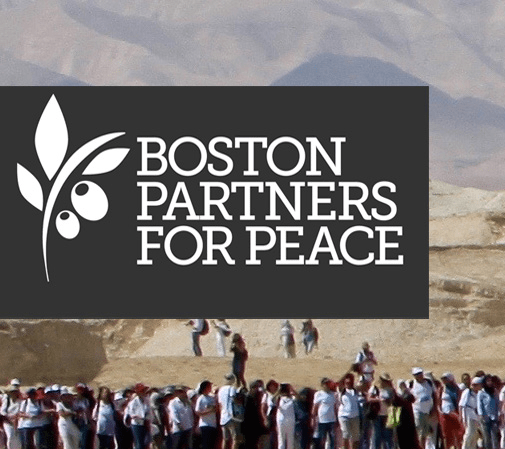The topic that’s dominated just about every conversation I’ve had this week has been BDS (Boycott, Divestment, Sanctions), the global campaign to deny Israel’s legitimacy. My week began by sitting on a Sunday morning panel at the J Street conference, about countering BDS. And throughout the entire week, I’ve been working intensively with many of our members and partners – within and beyond the Jewish community – to challenge an effort by BDS proponents to secure the support of the Cambridge City Council in advancing their cause.
The topic of BDS is one I’ve grown comfortable discussing. This movement, so often rooted in anti-Semitism, is one we’re committed to confronting whenever it rears its ugly head and in whatever form it takes. But frankly, as a Jewish community activist and as a passionate supporter of the State of Israel, this is not how I would prefer to spend my days.
But there’s one question that keeps emerging from my conversations about BDS, one that I invite and welcome. Over and over again, I keep hearing, “Well, ok, I get it. BDS is wrong, but then what? What do you propose we do to help pave the way to peace and justice for Palestinians and Israelis?”
I truly love this question, and the opportunity it opens up to discuss an aspect of our work of which I’m very proud.
Our view at JCRC has been formed by the considerable time we’ve spent, particularly through our Israel study tours, talking with Palestinians and Israelis both in “pre-1967” Israel and on the West Bank. We have grown in our understanding that the path to a better future needs to come from changemakers on the ground: by creating partnerships and collaborations across all that divides them, recognizing each other’s human dignity, and affirming each other’s narrative and legitimacy in a shared homeland. Most important, our view is that we, sitting here in Boston, need to invest in their social, political, and financial capacity to change the narrative and shape their future.

 This is why we were so proud to launch Boston Partners For Peace. It is our way of saying, in partnership with CJP, that we have a responsibility to do something and to make sure that it is productive.
This is why we were so proud to launch Boston Partners For Peace. It is our way of saying, in partnership with CJP, that we have a responsibility to do something and to make sure that it is productive.
It is why we support people-to-people groups like The Parents Circle – families on both sides who have lost loved ones to the violence and who are promoting reconciliation through educational programs and dialogue circles. It is about us believing in civic engagement of thousands of Israeli and Palestinian women from diverse backgrounds who, through Women Wage Peace, are working to create a groundswell to pressure decision makers to work toward peace. It is about the power of economic cooperation to build the conditions for a better future, through groups like EcoPeace, bringing together Jordanian, Palestinian, and Israeli environmentalists in cooperative efforts to protect the environment and advance sustainable regional development.
And it is about supporting education through a group based right here in Cambridge, MIT MEET, where young Israeli and Palestinian leaders come together to create positive change through technology and entrepreneurship.
Our work in this arena is also about our own advocacy for the creation of an International Fund for Israeli-Palestinian Peace, through the Alliance for Middle East Peace (AllMEP). AllMEP’s efforts resulted in a 20% bump in support for Israeli-Palestinian people-to-people project funding in the recent U.S. Federal omnibus spending bill.
At JCRC, we’re not “solutionists.” We don’t pretend to have a shared analysis of every obstacle on the ground to achieve peace. We don’t presume to offer a comprehensive plan for resolving one of the world’s most enduring and complicated conflicts. But we do believe that it is the people on the ground – who we’ve come to know and believe in – who already are, and have the potential to become, the agents of a more hopeful future.
We believe that the path to a brighter future is not paved with boycotts and other efforts to further divide people and prevent the interactions that cultivate recognition and respect. Rather, we believe the future should be shaped by those who choose to walk together on a path toward mutual understanding, security, and peace.
Together, we can amplify their voices, change the narrative, and shape the future.
Shabbat Shalom,
Jeremy

